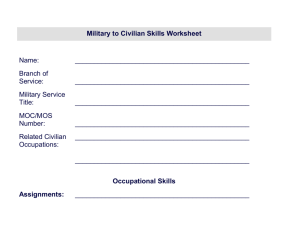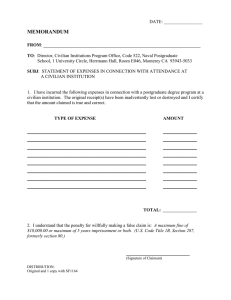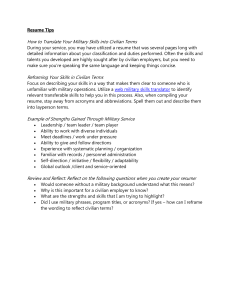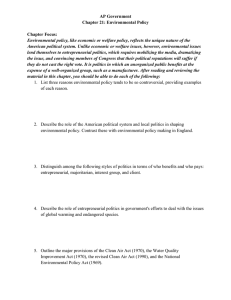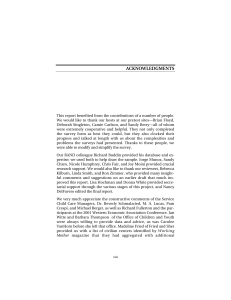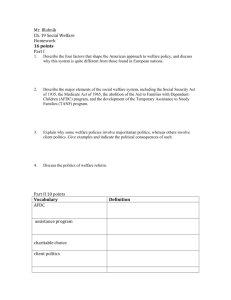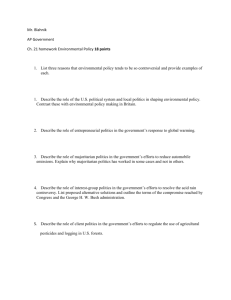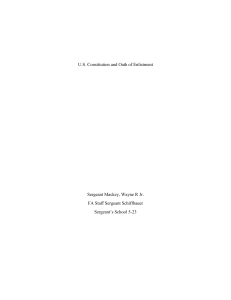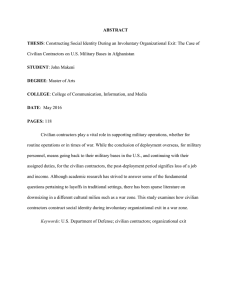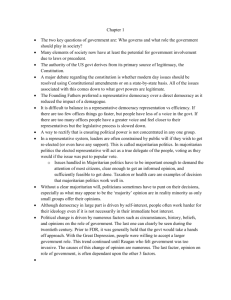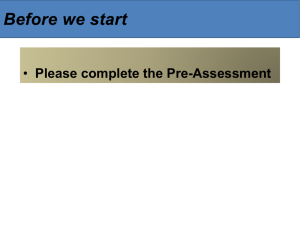wilson 20C - SteveTesta.Net
advertisement
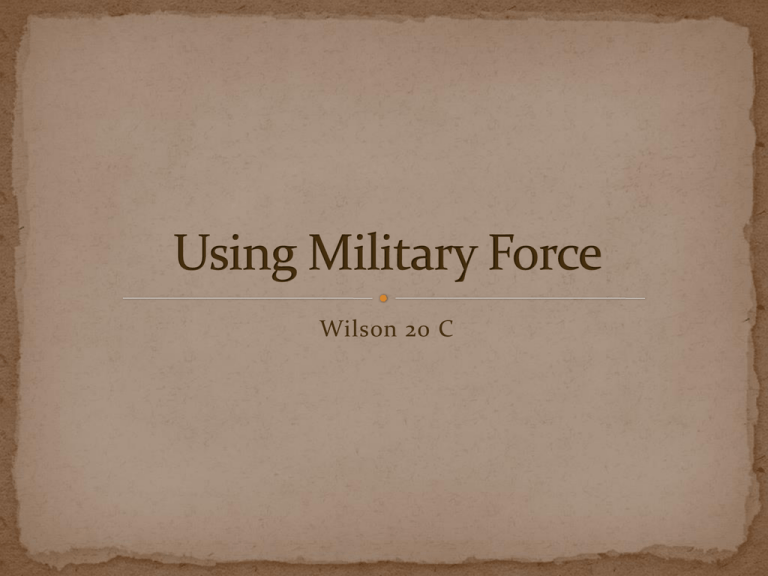
Wilson 20 C Great power vs. weak power Great responsibility End of cold war not the end of war Majoritarian view Military exists to defend the country Client politics The real beneficiaries are the unified bloc of military leaders and defense contractors How much? Before WWII – armed for war and disarmed after After WWII – spending driven by containment After USSR – forced to redefine principles After 9/11 – changed paradigm of war Liberals = peace dividend, no more threat Conservatives = world a dangerous place On what? Personnel – all volunteer force after Vietnam Women and gays Big-ticket items – highly specialized weaponry Cost overruns Hard to predict costs Underestimate quotes Gold plating request Sole-sourcing items Stretching out payments Small-ticket items are unique to military On what? Readiness Client politics interferes with preparation Pork emphasizes jobs over training Bases Epitome of client politics Fight to open new base in district Don’t close old base in district Commission on Base Realignment and Closure 1988, 1991, 2001, 2005 Civilian control over the military Founding principle National Security Act of 1947 Defense Department headed by civilian Joint Chiefs of Staff coordinates autonomous services Coldwater-Nichols Act of 1986 revised procedures Commanders oversee discipline and training Civilian leaders purchase, PR, audit, Congress Chain of command Continuing debate over coordination and consolidation From bipolar to unipolar world Not challenged militarily Vulnerable to terror attacks What to do with nations who harbor terrorists? Doctrine of preemption Political divide Dominate elections since More ideological Nation-building Arab Spring
